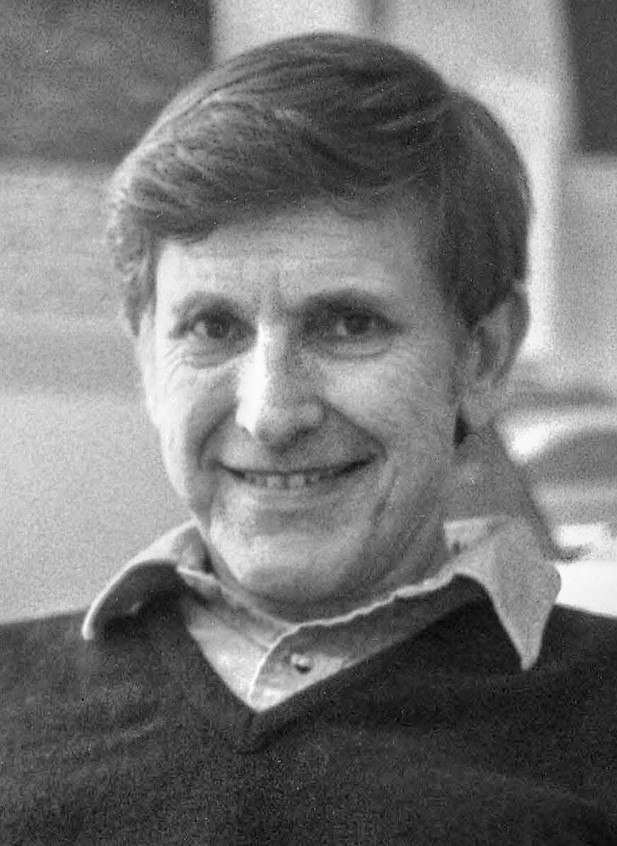Sydney Shoemaker, leading figure of Cornell philosophy, dies at 90
By Kate Blackwood
Sydney Shoemaker, the Susan Linn Sage Professor of Philosophy Emeritus in the College of Arts and Sciences, died Sept. 3 after a brief illness. He was 90.
Remembered as a powerful thinker and brilliant teacher, Shoemaker contributed to the outstanding reputation of Cornell philosophy during the second half of the 20th century, said Derk Pereboom, the Susan Linn Sage Professor of Philosophy and Ethics and senior associate dean for arts and humanities (A&S).
“Sydney is one of the most prominent and accomplished philosophers of this period,” Pereboom said. “He earned his doctorate at Cornell in 1958 under the supervision of Norman Malcolm, at the time the principal advocate in the United States of the philosophy of Ludwig Wittgenstein. Shoemaker’s work, especially early in his career, was marked by this influence.”
Beginning in the late 1960s, Cornell became a center for scientific realism, a contrasting point of view, Pereboom said: “In subsequent decades, Shoemaker’s research was fueled by a productive tension between these two philosophical perspectives.”
Shoemaker was a leading figure in metaphysics and philosophy of mind, said Carl Ginet, professor of philosophy emeritus.
“He was a bold and very influential philosopher, one of the very best of our generation, but personally he was shy,” said Ginet, who remained friends and close colleagues with Shoemaker since they met in fall 1954, when both were starting graduate work at Cornell.
Characterized by a lack of vanity and diffident self-presentation, yet a commanding way of sharing ideas, Ginet said, Shoemaker “was deeply admired by every philosopher who knew him.”
“He was quiet and careful yet always attentive to others’ comments and fully invested in digging deeper philosophically,” said Sally McConnell-Ginet, professor of linguistics emerita. “Some of his graduate advisees took linguistics courses with me and what I heard from them confirmed my own impression: He was highly supportive and constructive, working with them to foster their talents and to help them pursue their projects. Few could match his brilliance but his openness and his intellectual generosity have been models to me as well as to his many students and colleagues.”
Born in Boise, Idaho, Shoemaker earned an undergraduate degree in philosophy at Reed College and attended Edinburgh University as a Fulbright Scholar before coming to Cornell for his Ph.D. After teaching briefly at Ohio State University, Shoemaker returned to Cornell in 1961, becoming a full professor of philosophy at the university in 1970. Except for a few years teaching at the Rockefeller University in New York City in the late 1960s, he spent almost his entire career at Cornell, training many well-known philosophers, including Susanna Siegel, John Perry and Richard Moran.
“He was the reason I wanted to go to Cornell for graduate study and he was the most wonderful adviser I could have imagined,” said Moran, the Brian D. Young Professor of Philosophy at Harvard University, in a social media tribute. “Apart from his brilliance and clarity of thought, he was always responsive and encouraging to whatever I was doing. He was the opposite of an adviser who insists that you conform to their particular way of seeing the problems. With him I always felt that precious combination of freedom, guidance and encouragement that anyone needs to flourish in graduate school. By the time I got to Cornell Sydney had already been a legend in that department for many years and had everyone's deep respect and admiration.”
Shoemaker received a George Santayana Fellowship at Harvard, a John Locke Lectureship at Oxford University, and a Josiah Royce Lectureship at Brown University. He received National Endowment for the Humanities and Guggenheim fellowships. Shoemaker was elected to the American Academy of Arts and Sciences in 1996.
He was the author of “Self-Knowledge and Self-Identity” (1963), “Identity, Cause and Mind: Philosophical Essays” (1984; expanded edition 2003), “The First-Person Perspective and Other Essays” (1996), and “Physical Realization” (2007). He co-wrote, with Richard Swinburne, “Personal Identit”y (1984). With Carl Ginet, he co-edited “Knowledge and Mind” (1983) in honor of Norman Malcolm.
Shoemaker served as president of the Eastern Division of the American Philosophical Association from 1993-94. He served as editor of Cornell’s journal, the Philosophical Review, on the editorial boards of Philosophical Studies and Philosophical Forum, and as general editor of Cambridge Studies in Philosophy. He also served as chair of Cornell’s Philosophy Department.
Shoemaker is survived by his wife, Molly; his son, Peter; daughter-in-law, Jill Lagerstrom; and grandson Erik.
Kate Blackwood is a writer for the College of Arts and Sciences.
Media Contact
Get Cornell news delivered right to your inbox.
Subscribe

